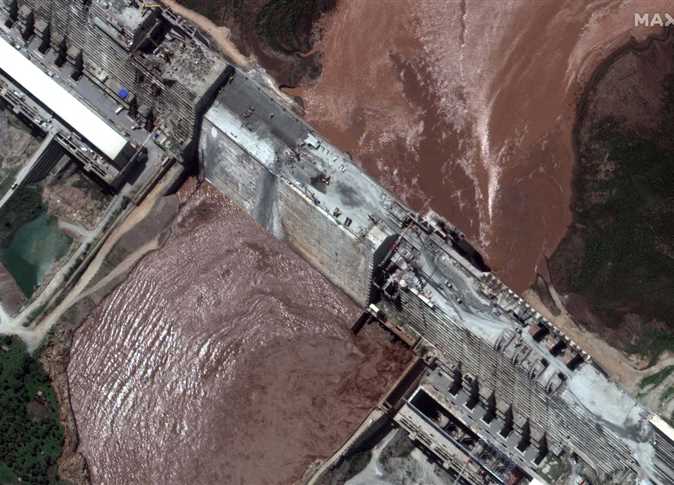
The Egyptian Ministry of Irrigation and Water Resources said on Monday that the second round of negotiations between Egypt, Sudan, and Ethiopia, under the auspices of the African Union (AU), only concerns the filling and operation of the Grand Ethiopian Renaissance Dam (GERD).
A ministry statement added that negotiating future projects on the Blue Nile River will come at a later stage, after reaching an agreement on the dam.
On Monday, the second meeting of the current round of negotiations was held in the presence of observers from the United States and the European Union, as well as experts from the African Union Commission.
The meeting was part of negotiations to reach a binding agreement regarding the filling and operation of GERD, based on the outcomes of an African Union presidential summit held on 21 July.
During Monday’s meeting, Egypt expressed its objection to Ethiopia’s unilateral decision to begin filling the dam without consulting and coordinating with downstream countries. Egypt said that this indicates that Ethiopia does not want to reach a fair agreement, since such a decision contradicts the Declaration of Principles.
Egyptian Minister of Irrigation and Water Resources Mohamed Abdel-Ati stressed the importance of quickly reaching an agreement on the filling and operation GERD, especially regarding multiple contentious points.
The ministry said that the current meetings are scheduled to last for two weeks.
At the end of Monday’s meeting, the ministers agreed that the technical and legal committees will discuss contentious points in two parallel tracks on August 4 and 5, and will present the results at the ministerial meeting on Thursday.
Egypt and Ethiopia have been in multiple rounds of negotiations over the dam during the past nine years, all of which have failed to reach a final agreement. Egypt blames Ethiopia for the failure of negotiations.
Ethiopia’s Foreign Ministry announced late last month that it is not seeking a binding agreement with Egypt and Sudan on the contentious GERD that it is constructing on the Blue Nile river, the main tributary of the Nile river. Ethiopian Foreign Ministry spokesperson Dina Mufti said that his country is instead seeking a guiding agreement that can be modified as needed.
Egypt, which relies considerably on fresh water from the Nile, has voiced fears that the GERD would negatively impact the country’s water supply, especially in light of overpopulation fears, and has insisted that measures be put in place to protect downstream countries in case of drought during the dam’s filling process.
Ethiopia, on the other hand, has stressed the importance of the project to bolstering its economy, where more than half of the population currently lives without access to electricity.
Edited translation from Al-Masry Al-Youm



